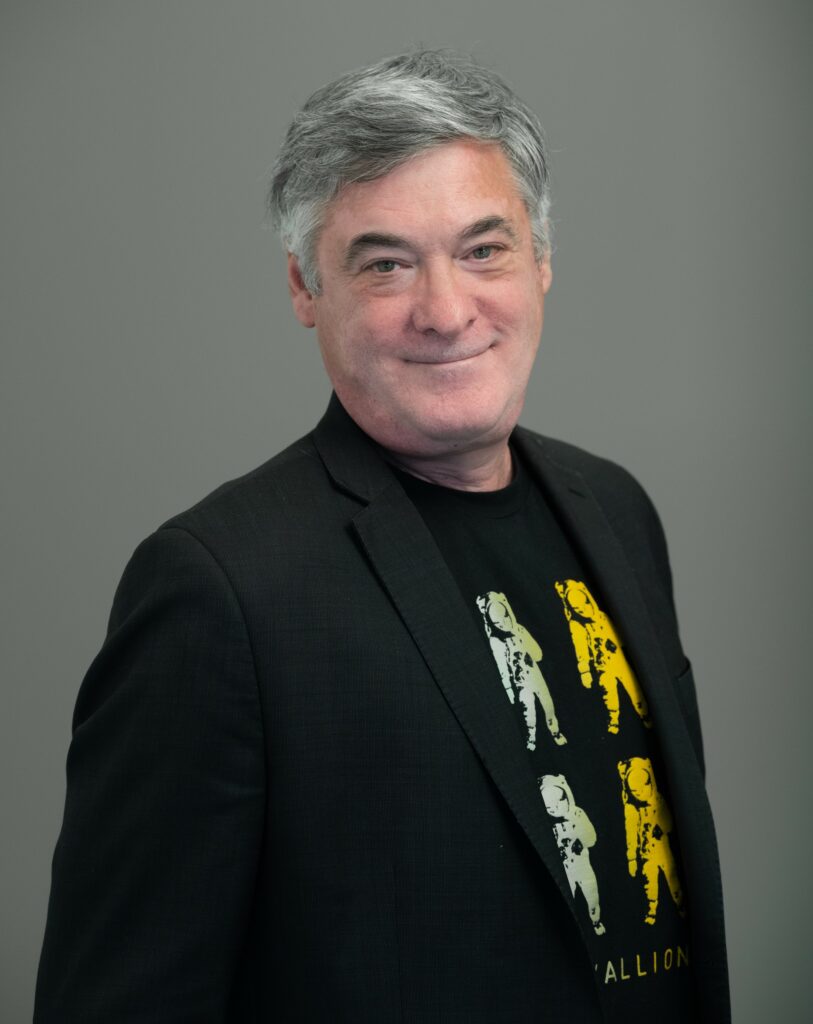Joe Paradiso, MIT Media Lab
Title: Sensing And Connecting Across Scales
Abstract: We are living in an era driven by ubiquitous sensing. The visions that many of us touted in the early days of ubiquitous/pervasive computing have largely come to pass in this age of IoT, and now sensors of all kinds are embedded in smart devices across our environments that draw very little power and connect seamlessly to widespread networking infrastructure. Where do we go next? The crux of much of this will be in how this information connects to people, and how our perception and cognition effectively expand beyond our corporeal confines. This talk will explore this viewed through the lens of recent projects happening in my Responsive Environments research group that involve sensing at various scales in the physical world (wearables, smart buildings, connected landscapes, and space missions) and how this information connects to people in different ways, from manifesting sensed or inferred phenomena in virtual analog environments to interfaces modulated by user attention and focus.
Bio: Joe Paradiso is the Alexander W. Dreyfoos (1954) Professor in Media Arts and Sciences at the MIT Media Lab, where he directs the Responsive Environments group and serves as the associate academic head. He received his PhD in Physics from MIT in 1981 and a BSEE from Tufts University in 1977, and joined the Media Lab in 1994 after developing spacecraft control and diverse sensor systems at Draper Laboratory and high-energy physics detectors at ETH Zurich and CERN Geneva. Much of his current research explores how sensor networks augment and mediate human experience, interaction and perception. This encompasses wireless sensing systems, wearable and body sensor networks, energy harvesting and power management for embedded sensors, ubiquitous/pervasive computing and the Internet of Things, human-computer interfaces, virtual/augmented reality, space-based systems, and interactive music/media. He has written nearly 400 articles and papers in these areas. In his spare time, he enjoys designing/building electronic music synthesizers, composing electronic soundscapes, and seeking out edgy and unusual music while traveling the world.

Xia Zhou, Columbia University
Title: Direct Air-Water Communication and Sensing with Light
Abstract: The ability to communicate and sense across the air-water boundary is essential for efficient exploration and monitoring of the underwater world. Existing wireless solutions for communication and sensing typically focus on a single physical medium and fall short in achieving high-bandwidth communication and accurate sensing across the air-water interface without any relays on the water surface.
In this talk, I will describe our effort in exploiting the use of laser light to enable effective communication and sensing in the air-water context. I will present our AmphiLight framework that allows bidirectional, Mbps-level communication across the air-water interface. I will focus on our design elements that overcome full-hemisphere laser steering with portable hardware, handle strong ambient light outdoors, and adapt to dynamics of water waves. I will then introduce our recent work Sunflower, which allows an aerial drone to directly locate underwater robots at centimeter-level accuracy, without any relays on the water surface. I will conclude with future work and open challenges.
Bio: Xia Zhou is an Associate Professor in the Department of Computer Science at Columbia University, where she directs the Mobile X laboratory. Prior to joining Columbia in 2022, she was a faculty member in the Department of Computer Science at Dartmouth College. Her research interests lie broadly in mobile computing with recent focuses on light based communication and sensing, mobile sensing, and human-computer interactions. She is a recipient of the Presidential Early Career Award (PECASE) in 2019, SIGMOBILE RockStar Award in 2019, the Karen E. Wetterhahn Memorial Award for Distinguished Creative and Scholarly Achievement in 2018 and named as N2Women: Rising Stars in Networking and Communication in 2017. She has also won the Sloan Research Fellowship in 2017, NSF CAREER Award in 2016, and Google Faculty Research Award in 2014. She received her PhD at UC Santa Barbara in 2013 and MS at Peking University in 2007.
